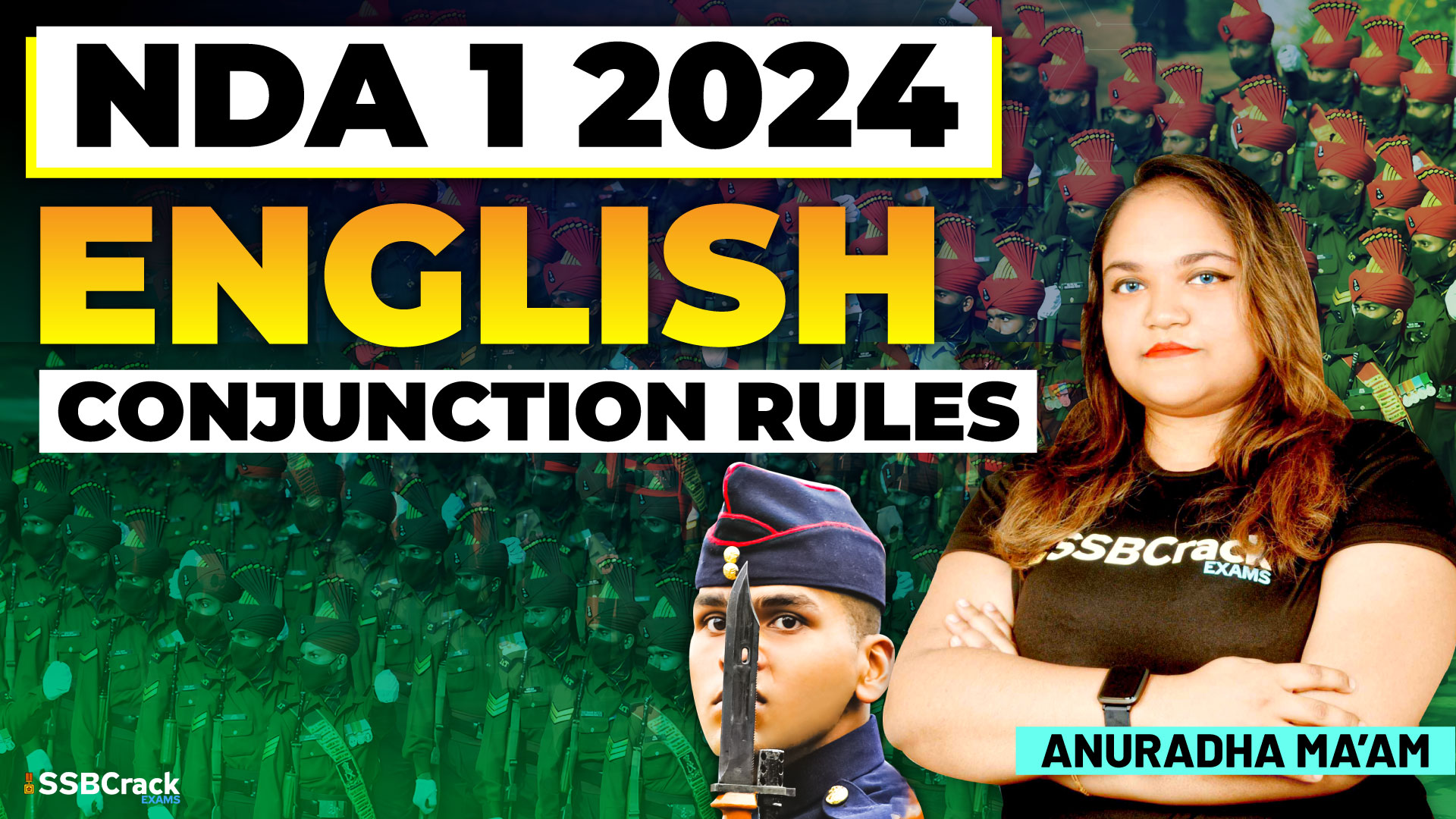The National Defence Academy (NDA) examination stands as a formidable challenge for individuals aspiring to serve in the revered armed forces. Within the English section of the NDA exam, a nuanced understanding of grammar is indispensable, with special attention given to the role of conjunctions. This article aims to illuminate the importance of conjunctions and highlight various errors that NDA aspirants should be aware of as they prepare for the examination.
- Understanding Conjunctions:Conjunctions are essential linguistic tools that connect words, phrases, or clauses within a sentence, facilitating a smooth flow of ideas and information. They play a crucial role in structuring sentences and conveying relationships between different elements.
- Coordinating Conjunctions: Join words, phrases, or clauses of equal importance. Examples: and, but, or.
- Subordinating Conjunctions: Establish relationships between a main (independent) clause and a subordinate (dependent) clause. Examples: although, because, while.
- Common Conjunction Errors:a. Incorrect Use of Coordinating Conjunctions: Misusing coordinating conjunctions can lead to sentence structure errors, especially in terms of joining clauses of unequal importance.
- Incorrect: She is strict but a fair officer.
- Correct: She is strict but fair.
- Incorrect: He not only studies, but he also works and participates in extracurricular activities.
- Correct: He not only studies but also works and participates in extracurricular activities.
- Incorrect: Because of his dedication, he always excels.
- Correct: He always excels because of his dedication.
- Incorrect: The mission was challenging. The soldiers completed it successfully.
- Correct: The mission was challenging, but the soldiers completed it successfully.
- Incorrect: He prefers to lead not only by example but expects the same from his subordinates.
- Correct: He prefers to lead not only by example but also expects the same from his subordinates.
- Importance of Conjunctions in NDA Examination:a. Clarity in Communication: The armed forces emphasize clear and concise communication. Mastery of conjunctions ensures officers can convey instructions and reports with precision.b. Structural Integrity in Writing: The NDA examination evaluates candidates on language proficiency, including the ability to construct grammatically sound and structurally coherent sentences.c. Logical Connection in Comprehension: Understanding conjunctions aids aspirants in accurately interpreting written instructions, reports, and briefings, contributing to effective comprehension.
- Strategies for Mastering Conjunctions:a. Know the Types of Conjunctions: Understanding the distinctions between coordinating and subordinating conjunctions is fundamental.b. Practice with Variety: Regularly practice sentence construction and exercises involving different types of conjunctions to reinforce correct usage.c. Read Actively: Engaging with military literature exposes aspirants to correct conjunction usage in relevant contexts, aiding in a more intuitive understanding.d. Seek Feedback and Revise: Seeking feedback on written exercises and revising regularly contribute to improvement and retention of learned conjunction rules.
Conclusion:
In conclusion, a robust grasp of conjunctions is vital for NDA aspirants seeking success in the English section of the examination. By understanding the roles of different conjunctions and avoiding common errors, aspirants can enhance their linguistic skills. Mastery of conjunctions not only ensures success in the NDA examination but also equips candidates for effective communication in the dynamic and challenging environments inherent to a career in the armed forces.







